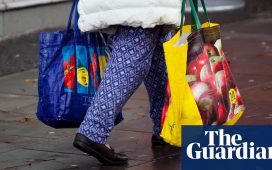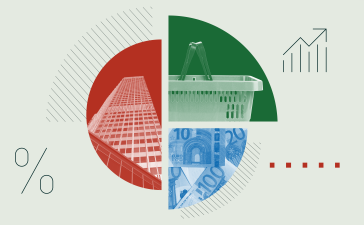Unlock the Editor’s Digest for free
Roula Khalaf, Editor of the FT, selects her favourite stories in this weekly newsletter.
John Lewis and Waitrose have said “greed not need” is driving record levels of shoplifting as the retail group trials trolleys that lock if people do not pay and smart shelves that can detect weight changes.
The group, which has 331 supermarket branches and 34 department stores in the UK, is implementing a host of measures across its estate after a trial last year.
“Shoplifting and retail crime have been a growing problem across the industry . . . we wanted to see what was the cumulative effect of doing more than one thing,” Lucy Brown, director of central operations and security for the John Lewis Partnership, told the Financial Times.
Brown added: “There’s a depressing narrative around cost of living and that shoplifting is because of that. I’m not seeing that. I describe it as absolutely greed, not need. There are lots of people, they shoplift for as many hours in the week as I work, which is a lot. It’s basically their occupation.
“You get organised gangs . . . They will strip the shelves . . . They’re doing that for resale. You then get prolific offenders, who are described as having chaotic lives, and they are generally stealing to feed their own addiction or they are stealing to swap something to feed that addiction.”
The retailer has been installing technology in larger supermarkets to automatically stop trolleys if items have not been paid for, training hundreds of staff and upgrading CCTV systems as well as installing more so-called public display monitors, particularly near the alcohol and meat aisles that are attractive to thieves.
The monitors act like mirrors and “they show what we can see”, Brown said. “Bluntly, people don’t like to see themselves steal. If you went to a shop in the ’80s and ’90s, they often [had] mirrors — and we still deploy mirrors in certain areas because they show stuff like ‘quiet corners’ — but they absolutely work in terms of deterring people from shoplifting.”
The measures come as retailers fight a surge in retail crime. Violence and abuse against staff rose to 1,300 incidents a day in the 12 months to the end of August 2023 — up from almost 870 a day during the same period a year earlier, according to the British Retail Consortium (BRC), which represents more than 200 large companies in the UK. In the same period the cost of theft doubled to £1.8bn, with more than 45,000 incidents a day.
Departing John Lewis chair Dame Sharon White previously blamed a large part of the increase on a rise in organised crime and “shoplifting to order”, with repeat offenders now co-ordinating hits on multiple stores in succession. Last year the retailer said that it had suffered a £12mn year-on-year increase in stock “shrinkage”, most of which was because of shoplifting.
Thanks to the new measures, levels of shrinkage at Waitrose and John Lewis had dropped between 40 per cent and 50 per cent on an ongoing basis in some cases, Brown said, and workers felt safer too.
“Every shop is getting something,” Brown added, who is also set to trial weighted shelves that track what is normal for a shop. “If more product moves off that shelf than typical, technology will alert us.”
In October, police and the government launched measures to tackle the rise in retail crime, known as the Retail Crime Action Plan.
Before the UK election was announced, Prime Minister Rishi Sunak said he would make assaulting a retail worker a standalone criminal offence in England and Wales, mirroring an existing law in Scotland. However, many bills have been junked since, including the Criminal Justice Bill.
Tom Ironside, director of business and regulation at the BRC, said: “We will be pressing hard after the election for the reintroduction of a standalone offence and aligned measures to tackle retail crime.”









